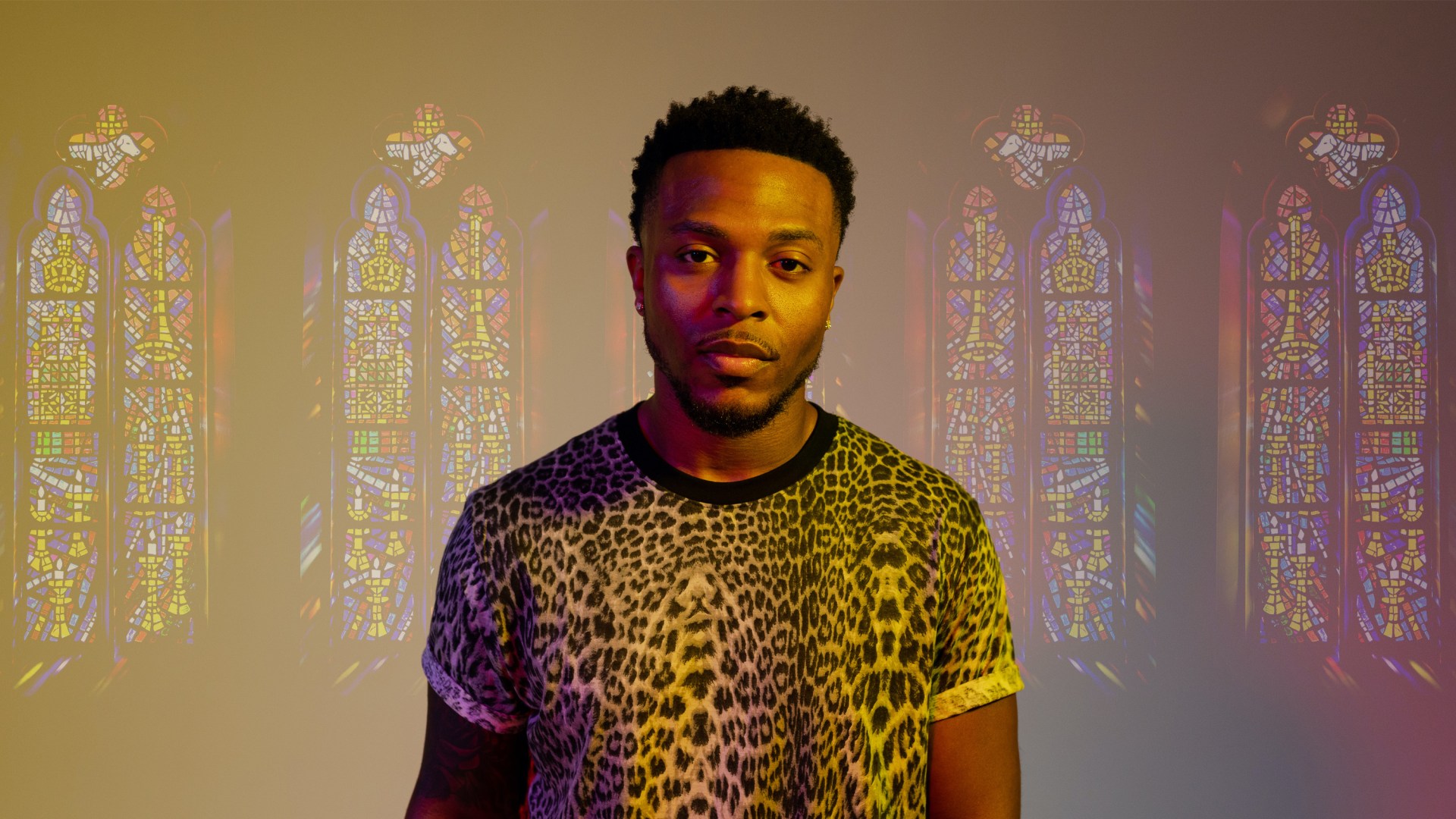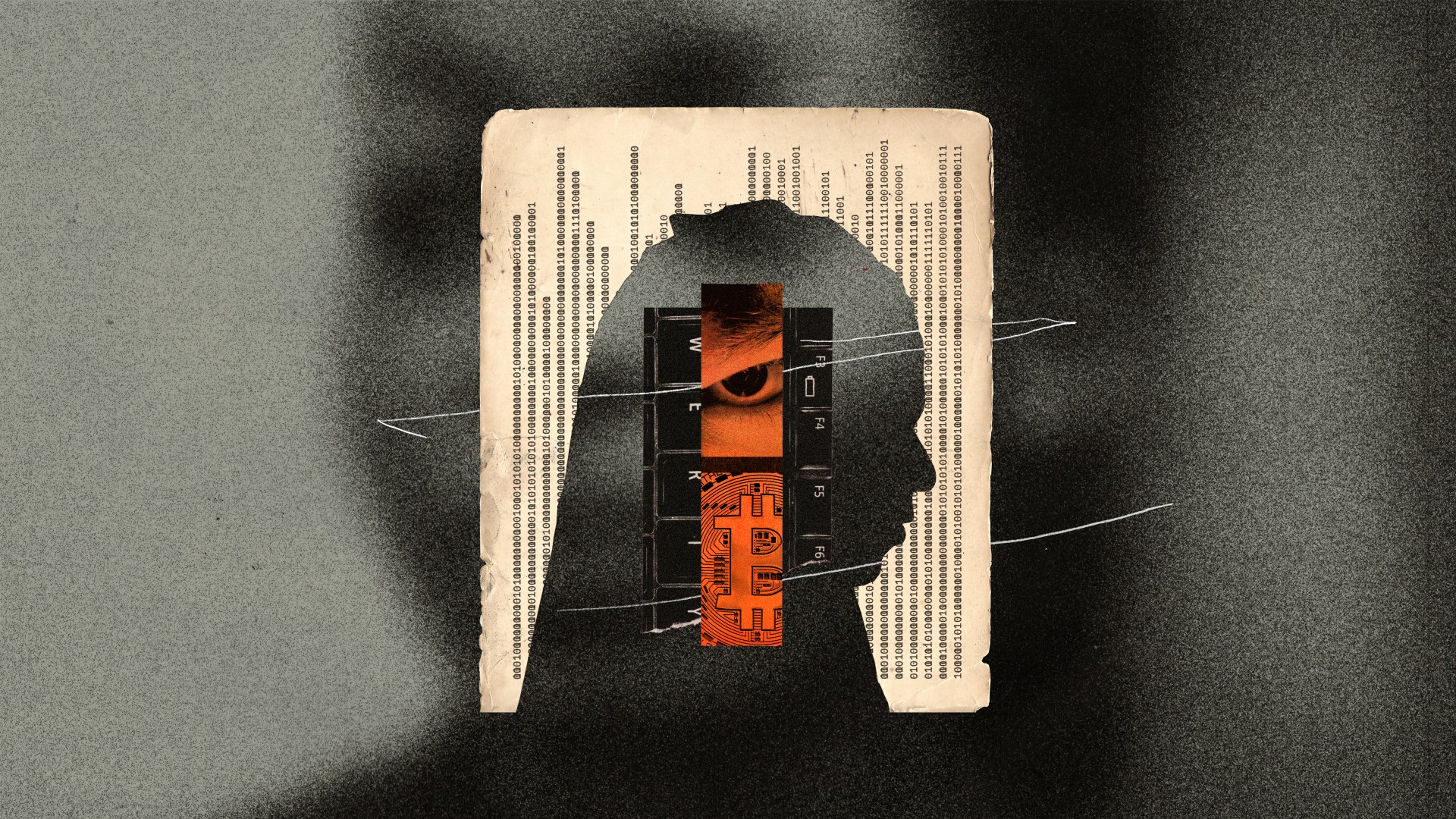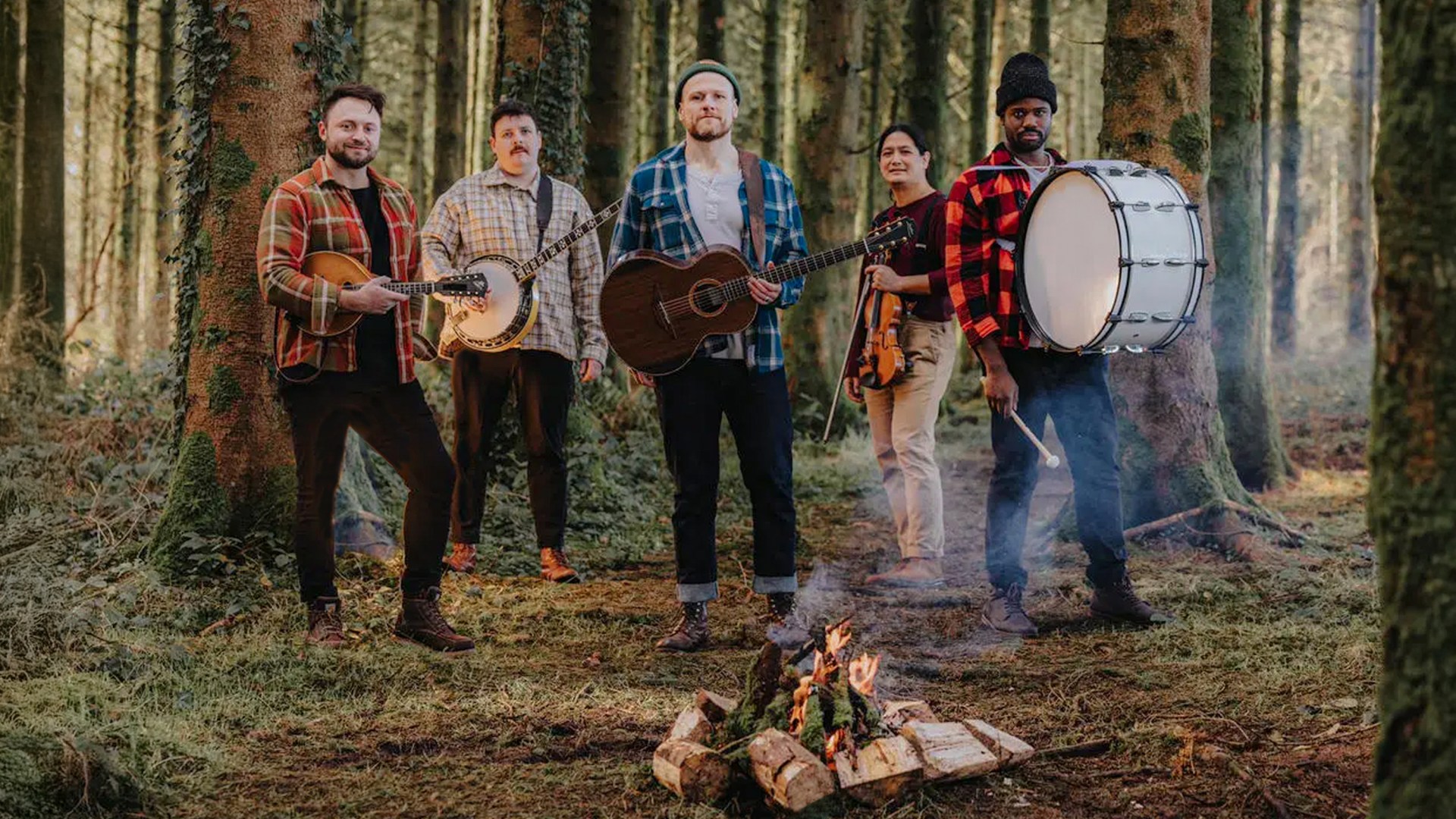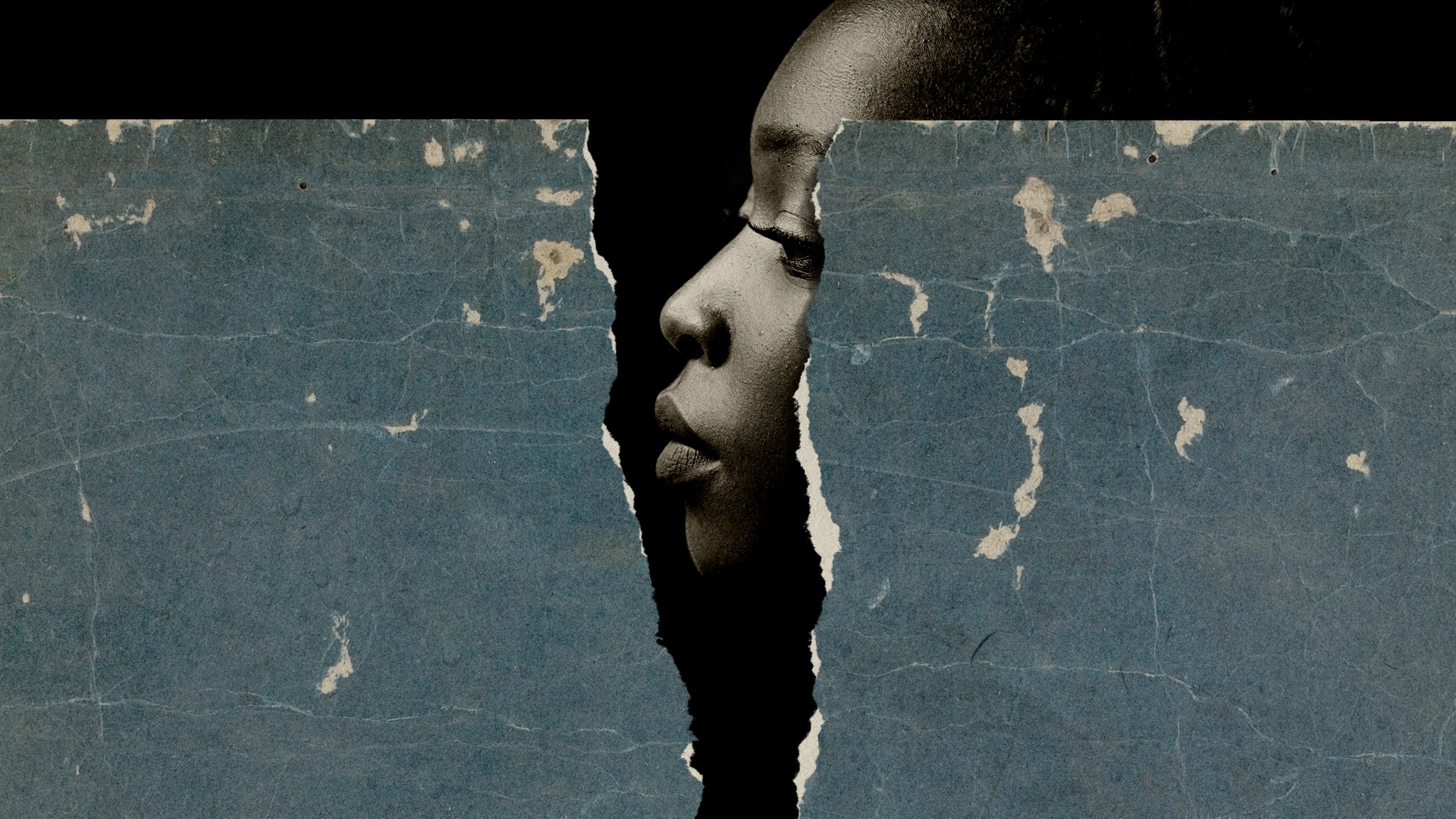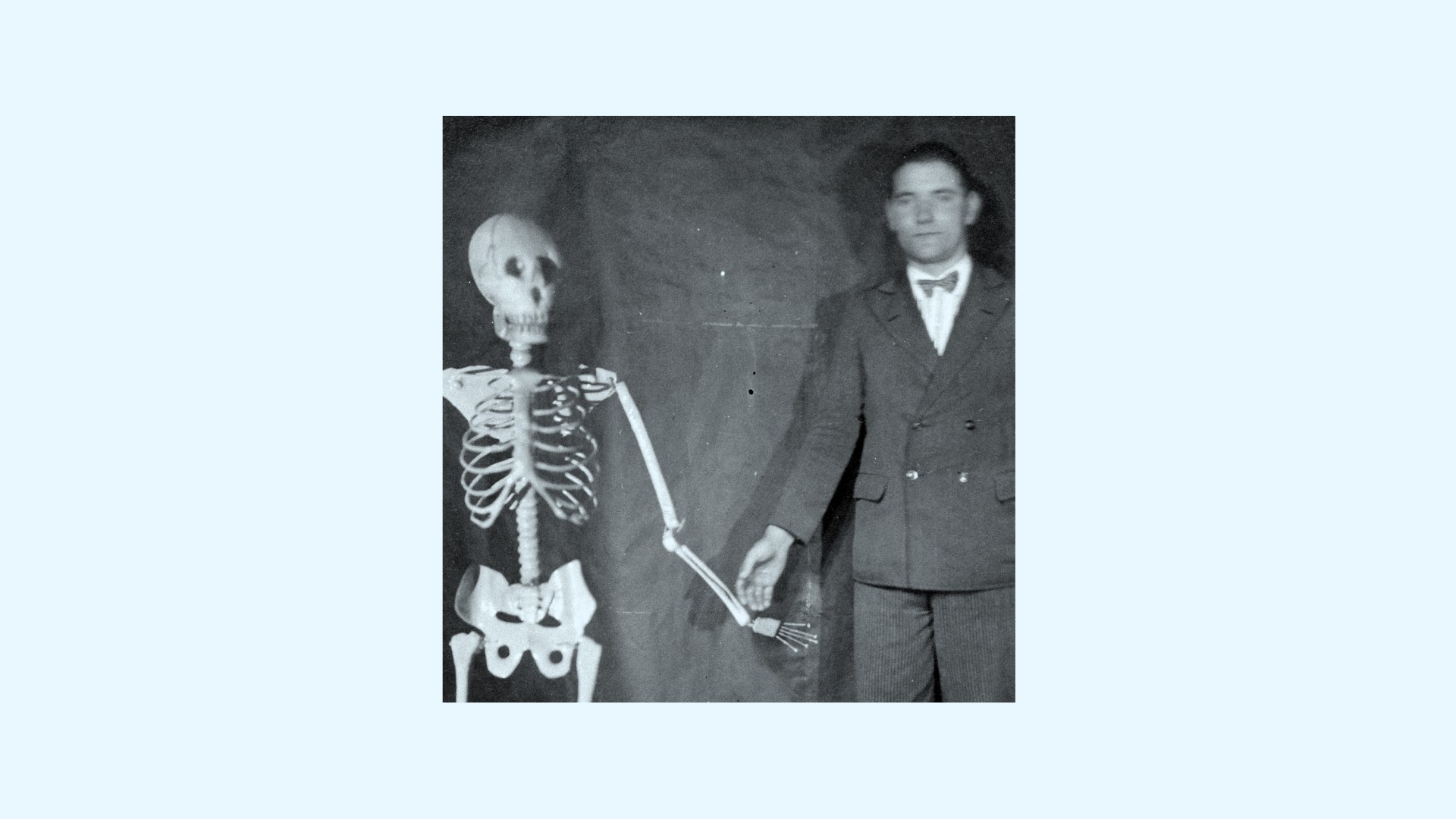Nearly 15 years ago, Christian hip-hop artist Flame put out his first solo album, Captured. Since then, the Grammy- and Dove-nominated artist has released nine more records.
But not all those records have come from the same theology.
That’s because Flame, once a Reformed Baptist, is now part of the Lutheran Church–Missouri Synod, a shift he made apparent in 2020 with his album Extra Nos (Latin for “outside of ourselves”).
Since then, he’s put out Christ for You on the Lord’s Supper and Word and Water on baptism, both riffing on the Lutheran understanding of those sacraments. Flame also collaborated with other Lutheran artists on the album Freedom Lessons, explaining Martin Luther’s Small Catechism. His 2024 album is called Neo Ethos.
Lutheran Brethren writer Gretchen Ronnevik interviewed Flame about his denominational change and the impact it’s had on his music. Their conversation has been edited for clarity and length, and song lyrics have been inserted by the editor throughout.
You recently moved from Reformed theology to Lutheran theology. What was that process like?
I went to Concordia Seminary in St. Louis in 2016. After I graduated in 2018, I took a year off to work through everything, trying to see if the ideas would hold outside of an academic environment. I thought, I’ve seen the best answers and the brightest minds—let me see how this works out in the wild, talk to a lot of people outside of the Lutheran space, ask questions. That’s really when it became clear that I couldn’t unsee what I’d seen.
What was the tipping point for you?
Two things: sacraments and the universal atonement.
[Interviewer’s note: Calvinists believe that Jesus died only for the elect. Lutherans believe that Jesus died for the whole world (universal atonement) and yet only the elect will believe and be saved. This is different from universalism, which proclaims salvation for all people regardless of belief.]
The tipping point was going back through the Scriptures, seeing that Jesus did die for everyone. That was a big deal for me. To be sure, it was the sacraments too. I mean, it was a little bit like a pseudo crisis—it wasn’t dramatic. It was just a disappointment. Why didn’t anybody expose me to the church fathers on these matters?
You’re simply not going to find not one church father that made the confession
That what baptism really is—
An outward sign of an inward expression.
It’s not in the Bible, and Scripture don’t teach it.
American pulpits,
Most people preach it.
Wanna know what baptism really is?
First Peter 3 verse 20, 21,
Go read it.
Baptism saves, remission of sins,
A means of grace to get you cleansed. Faith receives it. Based on Jesus’ work, The ancient church believed it.—“The Patristics,” Word and Water
How did this theological shift change your career?
I’ve been doing music as a full-time artist since 2004. My entire career has been built around the Reformed Baptist audience. I may have been a little naive; kind of like Luther, I thought everybody was gonna be excited. Everybody loved to talk about Scripture and doctrine and theology. I thought they’d say “This is great! What books are you reading?”
It was the opposite of that. At first, it was stunned silence. In 2020, I put out a project titled Extra Nos. There was no response from my friends, no “We like the project,” “We dislike the project.” Just silence. Pastors, influencers, friends. I’m like, “Man, is this not good? You know, you can tell me that too. I can take that.” It was just silence.
Then the questions start to roll in: “Are you Roman Catholic?” “Have you left Christianity?” People thought the stuff I was saying was an invented Christian sect—a spinoff, like I’d found some weird insights. They were concerned. Maybe an act of love, just trying to be patient, figuring out how to approach me? But I did notice a pulling away. That was stressful—a lot of anxiety, a lot of fear.
But they see the Grammy nomination and the compensation hitting stages with the gang.
But when you push ancient Christianity through Word and sacrament, then you see people change.
Dang!
I really thought they would hallelujah.
The closest to ya will cock-and-shoot ya.
Standing too close to Dr. Luther.—“Another Man’s Shoes,” Neo Ethos
I still didn’t get a sense of the cost, though. I didn’t think it would be dramatic, that churches would stop bringing me out. Over time I started to see a little of that—people pulled out financially or wouldn’t invite me to their events. Now, they’re like, “We don’t know what Flame is going to say”—which I respect [their desire to watch over what their church is teaching].
Did it shift the purpose of your art when you shifted theology?
I was one of the guys at the helm of the Young, Restless, Reformed movement. The Cross Movement hip-hop group, the Acts 29 church-planting network—we all just sort of met each other at the same time. We brought John Calvin back from the grave, I like to say.
I thought this would be more of the same. People would hear theology and Scripture being discussed in the music and say, “Man, let’s consider this.” My goal has always been to connect the dots between Scripture, theology, and everyday experience. I felt like Lutheran thought was perfect for that. I’m like, “Man, these are answers we sought.”
I see scattered tulips.
Come with me; I’ll show you what I found.
I be diggin’ in the text. Funny what you find when you low to the ground.—“Scattered Tulips,” Extra Nos
We had huge divides within the Christian rap genre: “Are you a Christian rapper or a rapper who’s Christian?” Christian rappers are the more “holy” expression. Rappers who are Christian are just positive and less bold about their faith. I’m thinking, “Man, guys. Luther, the doctrine of vocation—we can validate both of these!” I thought this insight would provide a path to think about what we do. But my new theology was the wall that I put up between myself and everybody else. That’s what I came to realize.
Is there anything you miss from Reformed spaces?
Yes. What the Reformed folks have done exceptionally well is create an appetite in the layperson for Scripture and theology. They love to talk Scripture. They love to talk theology. We would stay up late for hours in a restaurant, just talking. None of these people are ordained. They’re just churchgoers. They had the John MacArthur Study Bible, or Wayne Grudem’s Systematic Theology, or Calvin’s Institutes of the Christian Religion, or the Puritans. I miss that.
I think a lot of the people I meet now maybe take our theology for granted. Some may not even reference our confessional books—that kind of thing. That’s a noticeable difference.
And there’s a different kind of energy. In Reformed circles, everybody’s always talking about being “on fire for the Lord.” It’s this passion to make sure everyone hears about Jesus and the gospel. I like that. I think that’s a healthy human reaction to something you’re excited about, especially the gospel, you know?
You just put out a new album, Neo Ethos. What does that mean?
Neo is “new” and ethos is “the spirit of the day.”
The mindset behind the title was comparing these two moods or spirits, if you will. One was this ancient church expression of creeds and confessions in the Word of God and sacraments and tying things back to the patristics and apostolic fathers, this appreciation of church history. That’s the old way, which is good and healthy and rich.
The new way would be more consistent with what you get from the Anabaptists, the Zwinglians, and certain versions of the Calvinist movement—they all made their way to the Americas, and they overthrew so much of that stuff: “You don’t need the church calendar, candles, liturgy, infant baptism, or crosses with Jesus on them.”
Now, here we are, with this expression of Christianity that does have that fire and that freedom and that passion to get the Word out there. But with this new ethos, this new spirit, we’ve also left behind good things, good truth, good teaching and doctrine, that should undergird that passion and energy. I want to compare these two expressions of Christianity.
Gretchen Ronnevik is the author of Ragged: Spiritual Disciplines for the Spiritually Exhausted and cohost of the Freely Given podcast.

